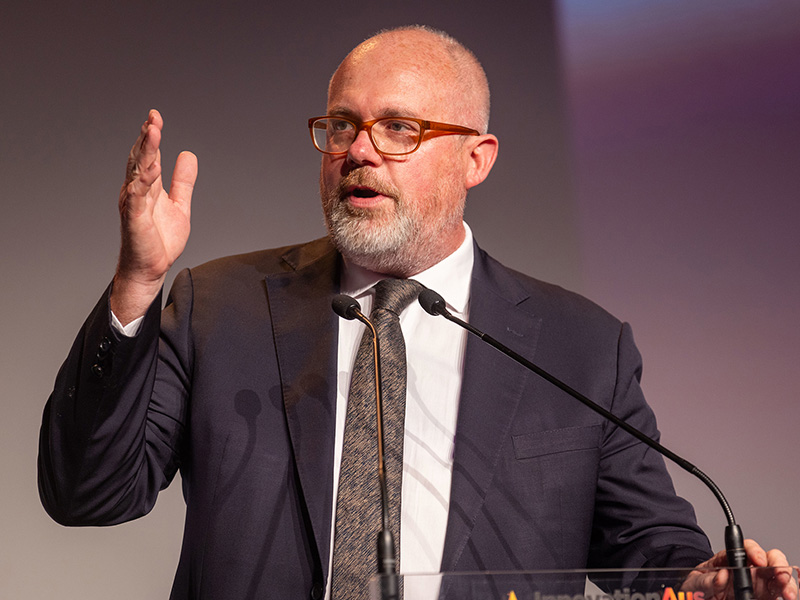In his first major address as Minister for Industry and Innovation, Tim Ayres on Wednesday pledged to deliver coordinated industrial policy that isn’t “shackled by dogma” and better link it to the research system.
Senator Ayres told a summit of applied researchers that he will link the research system to the Albanese government’s Future Made in Australia framework, which is upending economic orthodoxies in response to economic, social and geopolitical shifts.
“The task before us is very clear. Australia must build its economic complexity and resilience, and do it with purpose and urgency,” Senator Ayres said.

The Future Made in Australia framework, which Senator Ayres led last year, was ordered by Prime Minister Anthony Albanese to identify and support certain strategic industries and capabilities like green hydrogen and quantum computing.
They have been identified as ones Australia can play a bigger role in amid the transition to net zero or are vital to economic resilience.
But the framework was criticised as a new age version of ‘picking winners’ and has not been supported by the opposition, which branded it high risk corporate welfare.
“The Prime Minister was not heralding a retreat into protectionism, or the rise of a hulking government crowding out private investment,” Senator Ayres said on Tuesday.
“What he was signalling was a need to move past arid, think tank platitudes about the role of government and old binaries. Government needs to work alongside the private sector to grow the economy, boost productivity and secure prosperity.”
Senator Ayres said with the framework now legislated in place the task in the government’s second term is about “coordination, delivery and impact”, which includes linking the industrial policy to the innovation system.
“We also have a unique opportunity to join up our research and innovation system with our Future Made in Australia framework,” he said. “Given we have a productivity challenge, this is an opportunity we can’t miss.”
He also acknowledged experts’ warnings, including UTS Professor Roy Green, that Australia’s comparative advantage in resources and the trade and industrial structure it created has become a major barrier to the strategic ambitions.
“Roy noted recently comparative advantage was a brake on Australia seeking out strategic opportunity,” Senator Ayres said.
“We need to be seeking competitive advantage in high productivity, high skill jobs and industries of the future, including advanced manufacturing.
“We need to be harnessing technological advancement and innovation, like artificial intelligence.”
The new minister, who also holds the science portfolio, was addressing the Cooperative Research Australia event in Melbourne and headed off expectations of an immediate lift to public investment in R&D.
The national R&D system is under review, with a final report not expected until the end of the year.
“I understand many people in this room would see a path to economic resilience and diversification in lifting public investment in research and development,” Senator Ayres said. “That’s a conversation we need to have.
“But it’s not a magic bullet either. All of us, public and private, state and Commonwealth, research institutions and civil society, the physical sciences and the social sciences must lift together and pull our weight.”
Do you know more? Contact James Riley via Email.

